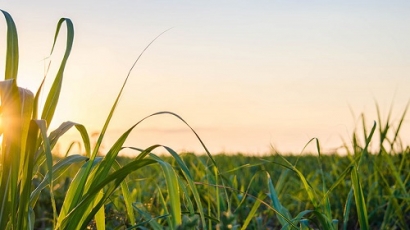
A collaboration between the UK and Brazil has shown that waste sugar cane and wheat straw from agricultural processes can be made directly into valuable chemicals with an increase in value of 5000-fold.
Unlike fossil fuels, biofuels are renewable. however, the economics of producing biofuels is currently very challenging compared to fossil fuels.
The new breakthrough demonstrates that biofuels and high-value chemicals, such as chemicals used by the food industry and precursors for human therapeutic drugs, can be produced directly from waste biomass in a single ‘one-pot’ process. This added value offers the potential to make the economics of biofuel production from plant-based sources more viable.
This agricultural by-product is currently burnt rather than reused. The new process has the potential to add value to the process of making biofuels from plants, particularly from sugarcane and wheat straw which are abundantly found in Brazil and the UK respectively.
The research was published in the journal Green Chemistry.
Dr. Neil Dixon. who led the study from the Manchester Institute of Biotechnology (MIB), The University of Manchester said, “Sustainable production of fine chemicals and biofuels from renewable biomass offers a potential alternative to the continued use of finite geological oil reserves. However, in order to compete with current petrochemical refinery processes, alternative biorefinery processes must overcome significant costs and productivity barriers.”
This study reports a consolidated biodegradation-biotransformation strategy for the efficient production of biofuel and high-value chemical building blocks directly from low value waste biomass, offering the potential to minimize environmental waste and add value to agro-industrial residues.
The work is part of a UK-Brazil five-year program grant being funded by the BBSRC and FAPESP in Brazil. UK has invested over £2 million in this project awarded to The University of Manchester, The University of Warwick and UCL.
The paper, Consolidated production of coniferol and other high-value aromatic alcohols directly from lignocellulosic biomass, by N. Dixon et al is published in Green Chemistry.

